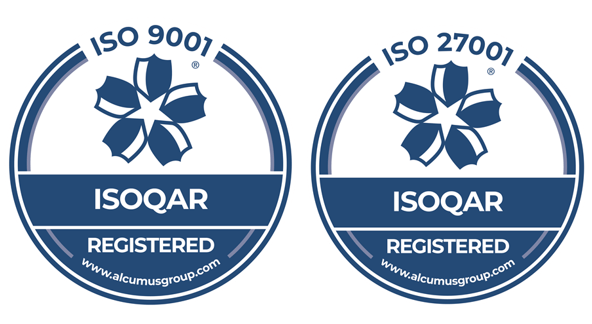Power to the people
If you’re involved in marketing, then no matter what your industry or target audience it’s likely the way your prospects and customers interact with your brand has changed dramatically over the past few years. The user has acquired much more control regarding brand interactions, to the point where often 50% of the buying decision has been made before a salesperson gets involved (source: IDC). At the same time, however, research suggests that up to 73% of B2B leads aren’t sales-ready when first generated (source: HubSpot); demonstrating the continued importance of sophisticated nurturing activities to creating valuable prospects, customers and advocates.
This challenge of converting users who more than ever are calling the shots has brought about a fundamental shift in marketing towards delivering exceptional customer experiences, and we’ve seen the focus of the CMO redefined accordingly. In this post I’ll look in more detail about how and why the role has evolved, in particular exploring the ways in which marketing is becoming entwined with technology functions and the impact this is having on the CMO/CIO relationship.
Strategically-focused CMOs
It’s clear that technology is behind a great deal of the changes taking place in the marketing landscape. No longer just a means to increasing efficiency, tech has become central to understanding and interacting with customers, and the impact of this can’t be underestimated; leading analysts IDC have even claimed that “by 2020… the core fabric of marketing execution will be ripped up and rewoven by data and marketing technology”. However, while this may cause some to fear for the future of the marketing function it also brings with it much opportunity, as it’s been reported that the CMO has made its way to the ‘top table’ in the organisation, increasing their influence on the CEO (source: IBM) as well as making them ever more likely to eventually take on the role themselves.
Blurring lines
As the capacity for transformation driven by the marketing department grows, forward-thinking CMOs have therefore been investing in the tools they need to help them achieve this vision. One area of particular strategic priority is analytics, with predictive capabilities, customer relationship management solutions and data visualisation applications providing marketers with insight into a wide range of user actions; information that can be used to drive organisational decision-making, provide users with relevant, consistent and high-quality experiences, and measure the success of any initiatives. To build a holistic picture these marketers are also joining up all touchpoints, both physical and digital, which of course brings with it a host of additional technical implications, especially as platforms continue to grow and diversify and mobile technologies become embedded into people’s day-to-day activities.
The importance of advanced analytics and mobile applications has been reinforced by a recent IBM survey that saw them jointly named as the digital technologies CMOs plan to use in future, with customer relationship, automation and collaboration tools coming close behind. Faced with this onslaught of technical considerations and capabilities it’s probably no surprise then to hear that marketing is increasing its private technology spend up to three times faster than IT overall (source: Forrester), and that CMOs are widely expected to soon invest more in technology than their CIO counterparts entirely.
It’s not just in terms of spend that we’re seeing an overlap either. The nature of the intersection between these departments is being debated at the highest levels, with Adobe’s CEO, for example, acknowledging a blurring of the distinction between what is marketing and what is technology. This argument can be backed up with numerous real-world examples, from CIOs and CMOs both prioritising the creation of a unified analytics infrastructure going forward (source: IBM) to research revealing that 60% of organisations are expected to have formal recruiting processes for marketers with data skills by the end of 2014 (source: Forbes).
Collaboration and alignment
But what does all this mean in practical terms? Well, it certainly seems to suggest that there’s a pressing need for these two chief officers to collaborate to ensure all activity is aligned with meeting the organisation’s strategic goals. This is a view already shared by many and, again, customer experience dominates the discussion, with 70% of marketers agreeing that they should work with IT in this area (source: Econsultancy). Additionally, with organisations 76% more likely to perform in terms of revenue and profitability when the CMO and CIO work well together, the bottom-line advantages of this kind of strategic alignment make it an especially compelling proposition.
However, achieving the necessary alignment is proving to be a challenge, with only 58% of marketers currently feeling that IT works collaboratively with them, and a third claiming to have no access to valuable customer data (source: Econsultancy). A potentially worse finding, too, is that 78% of IT people feel they do in fact work collaboratively with marketing; a disconnect that suggests a distinct lack of communication between the departments. As a result, CMOs are reporting that they still struggle with some of the more technical aspects of their role such as how to go about purchasing technology and running development project successful, and many marketers admit to feeling underprepared to deal with the data explosion they’re currently facing.
Next time…
So, it appears that while technology increasingly removes barriers to meeting user needs, issues with people and process continue to hold teams back. In future posts I’ll go into this problem further, exploring how and when CMOs and CIOs should work together to unlock the true potential of the technology at their disposal.
At Box UK we have a strong team of bespoke software consultants with more than two decades of bespoke software development experience. If you’re interested in finding out more about how we can help you, contact us on +44 (0)20 7439 1900 or email info@boxuk.com.

